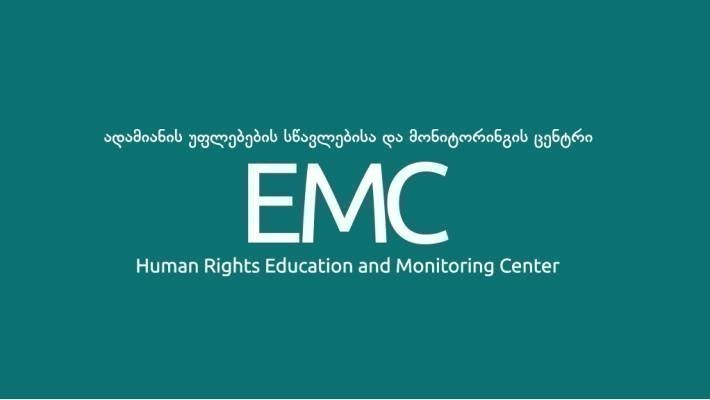საერთო ცხელი ხაზი +995 577 07 05 63


Human Rights Education and Monitoring Center (EMC) responds to the inadequate provision of public information by Ministry of Interior and the High Council of Justice and calls on agencies to ensure the timely and comprehensive delivery of public information to stakeholders and the general public.
The EMC appealed to the High Council of Justice and the Ministry of Internal Affairs a few weeks ago to receive public information on the measures taken after the declaration of the state of emergency. In particular, the information requested from the High Council of Justice was related to the criteria by which the courts make a decision, in which format certain cases are being heard - in the courtroom or remotely; taking into consideration the state of emergency, whether there have been any changes in the rules of electronic distribution of cases; The council was also requested to provide the statistical data on the case hearings. As for the Ministry of Internal Affairs, the council requested information on the statistics of crime and administrative offenses during the state of emergency, as well as whether special internal instructions were issued to the police officers, alongside the information regarding the measures taken during the state of emergency and forms of communication with citizens.
It is worth noting that the High Council of Justice, before declaring a state of emergency, has issued special recommendations for the common courts, which underlined specific measures designed to prevent the spread of the pandemic in the country. Recommendations, among other things, were related to the remote overview of court cases, although it is still unknown what criteria the courts use when deciding on the cases, or how many cases are being reviewed remotely. The High Council of Justice only clarified that there was no change in the rules of distribution of cases during this period and also provided us with information about the program through which electronic cases are processed in the courts and what type of training employees have undergone.
As for the Ministry of Internal Affairs, since the end of March, the agency has been publishing daily statistical data on the violations detected in connection with the infringement of the state of emergency. According to the data, from March 30 to May 5, 5835 people were fined administratively, the total amount of fines during this period exceeded 17,505,000 GEL. However, the agency does not process the data separately for the regions where the quarantine regime was enacted. Data on criminal cases of repeated violations of the state of emergency are also not available. The agency also does not provide information on other types of offenses, such as resisting police or petty crime. It is also unknown what type of special instructions were given to the police officers to deal with citizens during the state of emergencies and when using a specific coercive measures.
EMC is aware that dealing with the state of emergency requires special efforts from a number of government agencies. Nevertheless, it is critical that in the face of intense restrictions on a number of rights, the public has access to public information whenever possible. It should be noted that in the current situation, the police are one of the agencies that most often have to communicate with citizens and use various types of coercion mechanisms, which in turn is associated with risks of selective or disproportionate use of force, arbitrariness or other types of lawlessness. Under these conditions, it is also important for the court to be able to function transparently and openly in order to effectively protect the rights of its citizens and to build public confidence in justice system.
ady growing risks of human rights violations, it is important that the state makes every effort to ensure the democratic functioning of the agencies. Otherwise, the facts of potential violations of rights In order to effectively manage the current crisis, it is essential for society to be informed as much as possible about the activities of each agency and the current situation in general. In a state of emergency, when there are alremay be covered up and beyond public control. It is especially important to have access to information related to the state of emergency and the activities of the relevant agencies during these challenging times.
In view of the abovementioned, EMC calls on the Ministry of Internal Affairs and the High Council of Justice to ensure that public information is properly processed and fully accessible to the public.
The website accessibility instruction